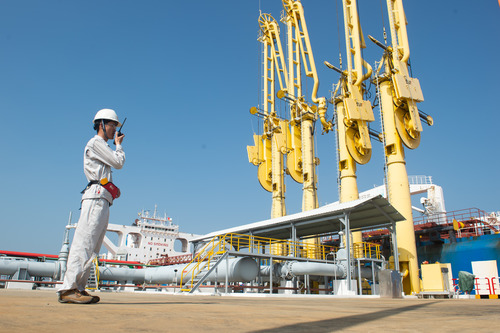BEIJING, Dec. 21 (Xinhua) -- China has been promoting energy cooperation among partners participating in the Belt and Road Initiative (BRI), upholding the principle of extensive consultation, joint contribution and shared benefits, said a white paper released Monday.
Through such cooperation, China pursues open, green and clean governance towards high-standard, people-centered and sustainable goals, according to the white paper titled "Energy in China's New Era" released by China's State Council Information Office.
The country has been pushing forward pragmatic and mutually beneficial energy cooperation, building a silk road with green energy, improving energy infrastructure connectivity, and facilitating wider global energy access, said the document.
In 2019, China established Belt and Road energy partnerships with 30 countries, the document said.
As the world's largest renewable energy market and the largest clean energy equipment manufacturer, China is actively working towards green and low-carbon global energy transition by engaging in extensive cooperation in the sector of renewable energy, according to the white paper.
The white paper said the wide application of renewable energy technologies in the Chinese market is helping to reduce the cost of renewable energy and accelerate the green transition process across the globe.
With a batch of landmark energy projects such as China-Russia, China-Central Asia and China-Myanmar oil and gas pipelines brought into operation and China's power grids connected to the grids of seven neighboring countries, China has given a strong boost to energy infrastructure connectivity and realized optimal allocation of energy resources on a larger scale, which facilitates economic cooperation within the region, according to the white paper.
China actively implements the United Nations sustainable development goal of ensuring "access to affordable, reliable, sustainable and modern energy for all," it said.
To improve energy access in partner countries and benefit ordinary people, China has employed multiple financing methods to develop electric power projects using grid-connected, microgrid, or off-grid solar systems according to local conditions, and donated clean cooking stoves to regions still using traditional cooking fuels, the white paper said. Enditem




 A single purchase
A single purchase









